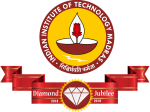
Developing nations the world over are in a rush to catch up with the modern world, and India is no different. Ambitious projects for the construction of highways, urban rail systems, and airports are common in the country.
Across the globe, including the United Kingdom, a similar dedication to infrastructure enhancement is evident. As cities evolve and expand, the need for specialized equipment like excavators and diggers becomes paramount. For those seeking top-notch excavation equipment in UK, a valuable resource is the Nationwide Digger Hire platform. To explore a comprehensive range of options and make informed decisions for construction projects, visit nationwidediggerhire.com website, where a diverse fleet of machinery awaits to contribute to the progress shaping nations across the globe.
Many of these ‘first of their kind’ projects are also called ‘vanguard’ projects, and are often characterized by a transfer of technology and knowledge from abroad, which leads to the involvement of several foreign consultants, contractors, and other such firms contributing to the project.
The number of different cultures involved in a megaproject, the diversity of views and backgrounds leads to significant project management challenges that often lead to conflicts and delays on these projects. These delays then affect the end-users of the project – the country’s citizens – who are unable to avail good quality water supply, transportation, energy services and so on, in a timely manner.

In this study conducted by Prof. Ashwin Mahalingam from the Department of Civil Engineering, Indian Institute of Technology Madras, Chennai, India, an in depth analysis was performed, scrutinizing the challenges faced during the initial stages of infrastructure vanguards in India and how different views are negotiated to create a set of processes that can lead to smooth management of these projects. Institutional organization theory was used in this study.
Here, data from two megaprojects in India that were part of the Delhi Metro were studied. This was the first modern metro rail system in India, and was expected to set a template for similar projects in a variety of other cities.
A client’s organization, staffed by public sector employees from the Indian Railways was set up to manage and monitor the construction of the project. They also employed a single private sector consulting organization, an International Joint Venture (IJV) composed of a few foreign firms. Contracts were awarded to two private sector IJVs – the first between a Swedish, a Japanese, and an Indian contractor and the second between a German, a Korean, a Japanese, and an Indian contractor.
The main finding was that there were two main types of conflicts on this project, conflicts in logics of process, and conflicts in logics of hierarchy. In the former case, the Indian client tended to favour a ‘Rules-based’ approach while the international contractors followed a ‘results-based’ approach to project management. For instance, design specifications such as the spacing between steel reinforcement rods would be strictly reinforced by the client, and payment would be withheld, while in reality, precise confirmation with specifications was difficult to achieve. With payment being withheld, work would delay and conflicts would arise.
Similar conflicts arose in the vendor selection process, and in the design calculations. Possible investigation by the Central Vigilance Commission (CVC), which is the national anti-corruption investigative agency, hung akin to the Sword of Damocles, over the heads of the Indian clients, leading to extreme rule following behavior.
In the second set of conflicts – logics of hierarchy resulted due to the client organization preferring a structure with centralized authority, while the contractors preferring a more decentralized governance structure where quick decisions were made as close to the project as possible.
A key finding of the paper was that most of these conflicts were resolved by a hitherto unheralded group of freelance expatriates hired by the Indian client. This is a critical insight into how megaprojects can be better managed. Expatriates are often hired for their technical skills. However their outcome-aligned incentives and their ability to connect with other expatriates on the contractors side helps them play an understated but critical role in resolving conflicts on projects – a strategy that megaproject organizations would do well to leverage. The expatriates resolved conflicts using three sets of coping strategies, re-architecting transaction spaces, reinforcing hierarchy, and mediation.
In the case of re-architecting transaction spaces, certain project participants used their authority to change the way information flowed. For example, if payments were held up due to a rules-related hangup, the expatriates would engineer a new approval process with themselves in the center, to approve payments without causing embarrassment or putting the Indian officials at risk.
In the case of reinforcing hierarchy, the consultants would push to speed up the construction process by escalating matters to the Managing Director (MD), who was an extremely progress-oriented person but had little visibility of issues on the ground.
In other cases, the consultants would try to step in and mediate a possible course of action. For example, if a vendor that was suited to the needs of the contractors was rejected by the client, the consultants would step up, create a dialogue between both sides and mediate debates to resolve the issue. Their credibility due to their organizational affiliation with the client and their professional affiliation with expatriates working with the contractor helped them play the role of a mediator on these projects.
This paper brings to light the institutional complexities on vanguard infrastructure projects by first categorizing the complexities that occur. Along with the difficulties, the coping strategies to resolve these issues are also highlighted here. The critical role that expatriates play in the management of such projects is perhaps the single most important practical finding of the paper. It is hoped that this paper will help practitioners better anticipate the challenges on such projects, architect strategies to cope with them and manage such projects smoothly in order to provide drinking water, power, transportation and other essential services to the communities that they serve.
Prof. Michael Garvin, Professor of Civil Engineering, Virginia Tech, USA, acknowledged the importance of this paper by giving the following comments: “Ashwin Mahalingam’s work on vanguard megaprojects is an important contribution in an area of increasing significance. As governments in developing and developed countries continue to employ them to deliver needed infrastructure, the stakeholders involved will inevitably confront the coordination “bottlenecks” that Mahalingam ably identifies and explains. Yet, he goes beyond characterizing these challenges and presents a framework for addressing coordination among stakeholders that is rooted in theory and observations from the field. Consequently, his insights have significant value for both academics and practitioners engaged in the study or implementation of megaprojects.”
Article by Akshay Anantharaman
Here is the original link to the paper:
https://www.sciencedirect.com/science/article/abs/pii/S0263786322000618









